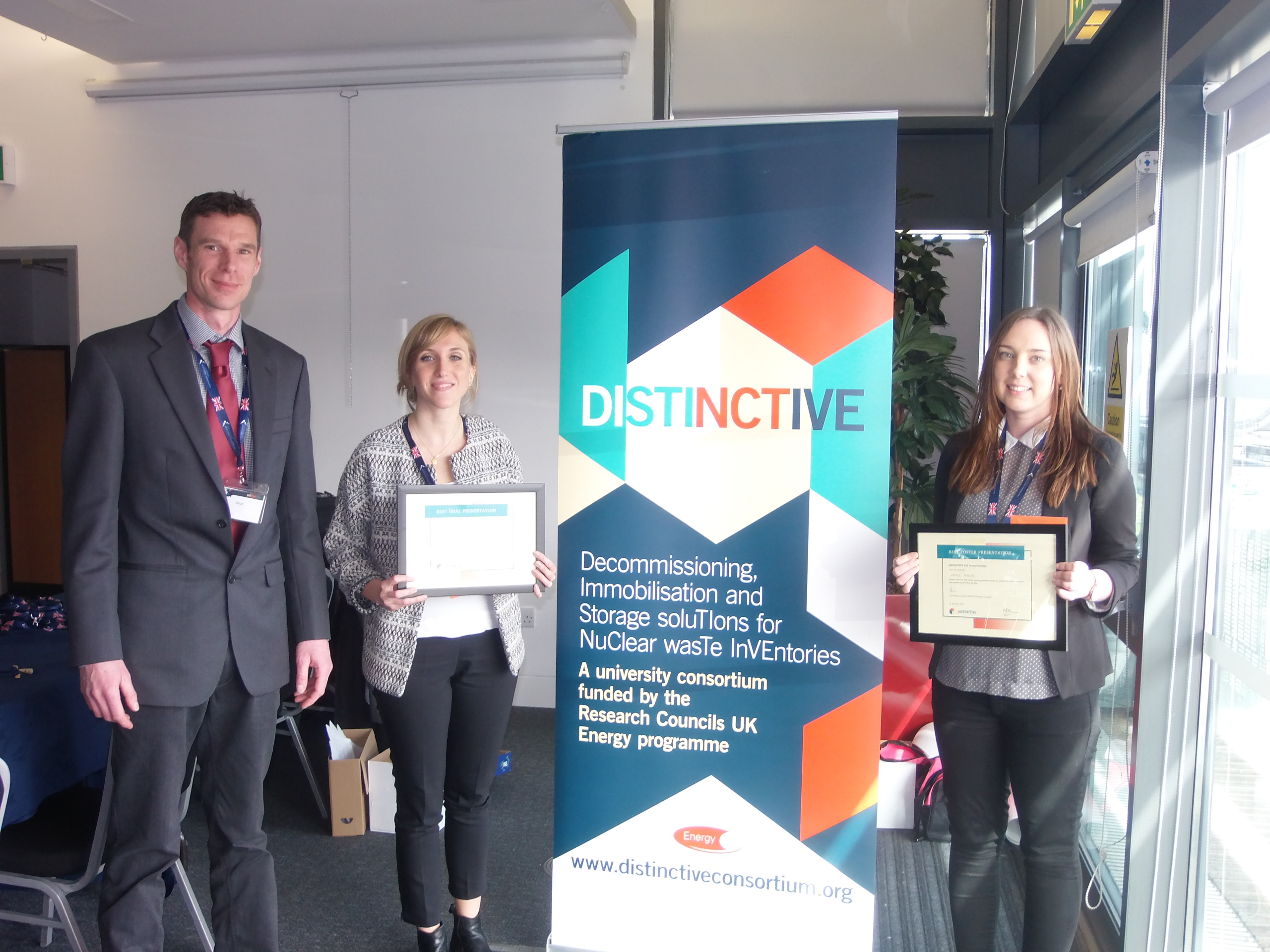Monday 16 May 2016
DISTINCTIVE Collaboration: Options for Exotic Carbide Fuels
A multi-disciplinary collaboration, the DISTINCTIVE (Decommissioning, Immobilisation and STorage solutions for NuClear wasTe InVEntories) includes the National Nuclear Laboratory among its partners. Alongside NNL, DISTINCTIVE comprises ten UK Universities, Sellafield Ltd. and the Nuclear Decommissioning Authority (NDA).
The programme of work incorporates 32 research projects within the broad area of nuclear waste management, decommissioning and disposal. DISTINCTIVE is arranged into four themes.
AGR, Magnox and Exotic Spent Fuels
PuO2 and Fuel Residues
Legacy Ponds and Silo Wastes
Structural Integrity
At the 2nd Annual Meeting of the DISTINCTIVE University Consortium, recently held in Bristol, the prize for Best Oral Presentation was presented to Claudia Gasparrini of Imperial College London by NDA’s Research Manager Dr Rick Short.

Claudia (centre, above), a NDA funded PhD student, has been investigating ‘Options for Exotic Carbide Fuels’ under the supervision of Professor Bill Lee at Imperial College and NNL’s Dr Duncan Coppersthwaite who is based at the Preston Laboratory.
Significant quantities of spent and unused fuel and manufacturing residues are currently stored on the Dounreay site in Caithness, Scotland. Most of these materials are in the form of uranium-plutonium oxide or metal with the remainder being uranium-plutonium carbide.
Long term storage of carbide materials is extremely challenging and direct disposal of the fuel is not considered viable as the reaction of the carbide material with water leads to the generation of considerable volumes of flammable gases. A key component of Claudia’s PhD project is the investigation of uranium carbide oxidation mechanisms and her preliminary results formed the basis of her winning presentation.
The work has direct relevance to the stocks of UK exotic carbide fuels, which will most likely require conversion to stable uranium oxide forms prior to extended storage or disposal. Claudia’s work at the NNL Preston Laboratory has enabled her to access uranium carbide fuel pellets previously manufactured for use in the Prototype Fast Reactor (PFR).
Working alongside members of NNL’s Waste and Residues Processing, Decommissioning and Fuel Technology Teams, Claudia has been able to utilise a range of experimental and characterisation equipment including facilities in the recently established Fuel Centre of Excellence. Through the DISTINCTIVE Consortium, Claudia has also secured access to complementary characterisation facilities at the University of Bristol’s Interface Analysis Centre and arrangements are underway for the transfer of uranium carbide pellets from the Preston Laboratory to Bristol.
Access to actual PFR fuel pellets and the use of state of the art characterisation facilities at the NNL Preston Laboratory and through the wider DISTINCTIVE Consortium will maximise the applicability of experimental results to the wider UK carbide fuel stocks.
